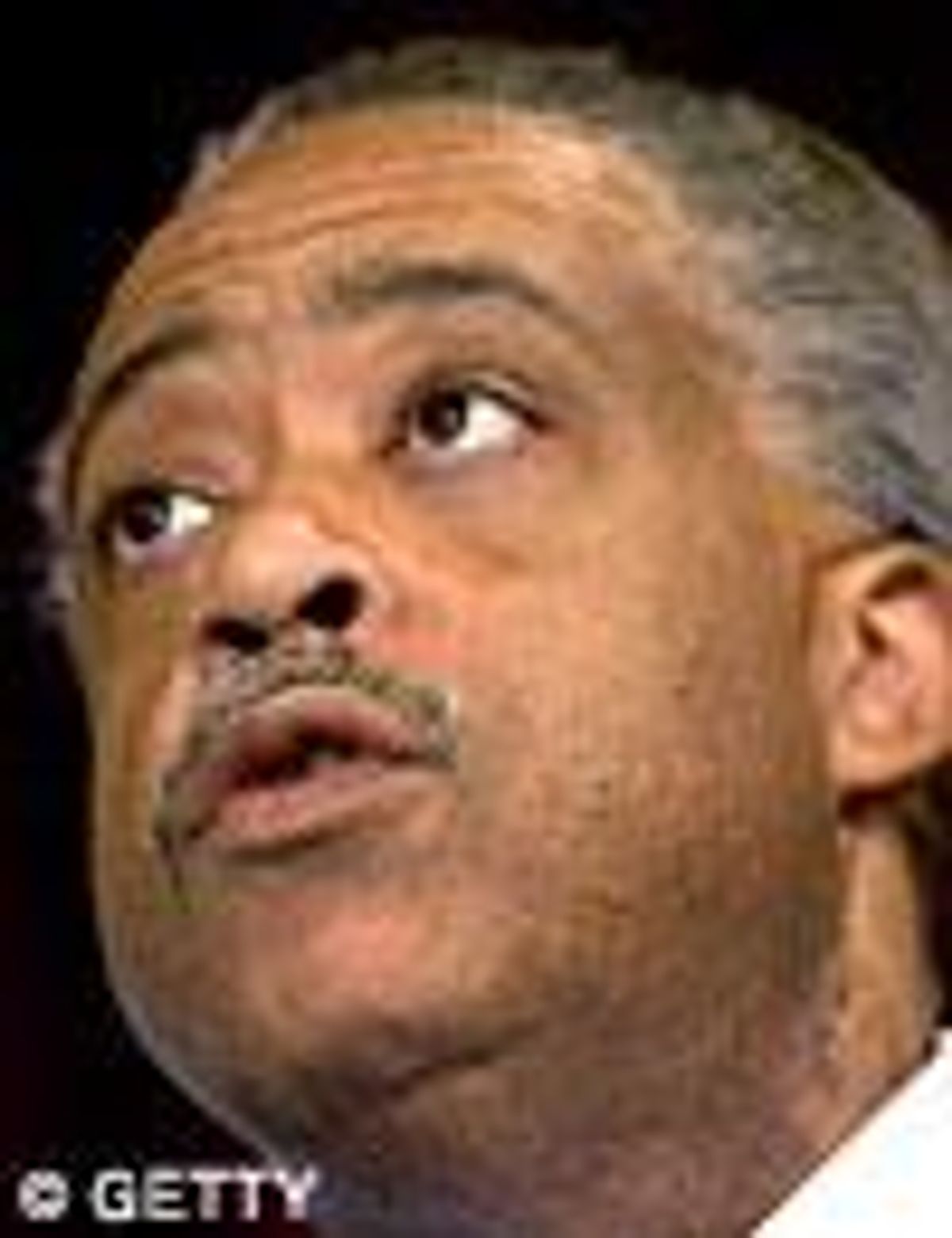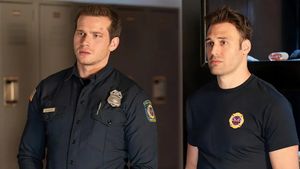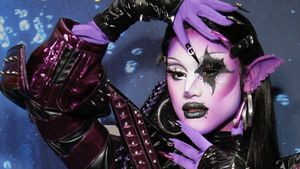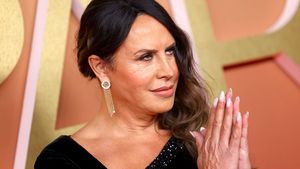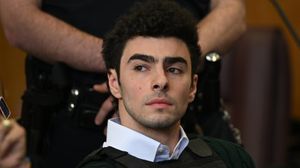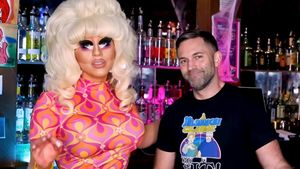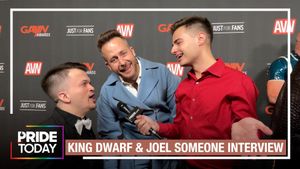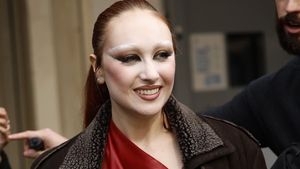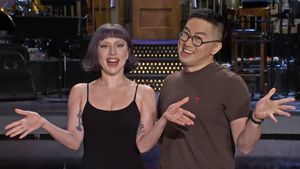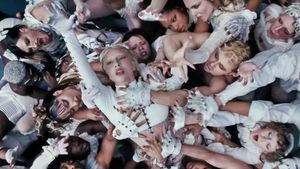Don Imus
forfeited his job a week after making a breathtaking racial
and sexual slur about the female basketball squad at
Rutgers. The nation's collective conscience was
soothed. Justice had prevailed.
Gen. Peter Pace,
who called homosexuality "immoral" and likened
it to adultery, retains his post as chairman of the
Joint Chiefs of Staff months after his comments ran in
the Chicago Tribune. The nation's
conscience is elsewhere, and justice is a pipe dream.
What gives?
Presumably if General Pace had labeled mixed-race couples
"immoral" or picked on any other minority in
the country--Jews, African-Americans,
Hispanics--he wouldn't still be running our
country's largest employer, the U.S. Armed
Forces.
So where is our
Al Sharpton--the knight in shining armor who swoops
in, takes on the mantle of gay outrage, and lashes out
until our aggressor is slain? Where is our
spokesperson with the political clout and media muscle
to face down the establishment?
Granted, the two
situations aren't completely analogous. For starters,
General Pace is a bigger goliath than Don Imus.
"You're not going to get a Republican
president removing the chair of the Joint Chiefs of Staff on
this issue--please," says professor Kenneth
Sherrill, director of the Center for Sexuality and
Public Policy at Hunter College in New York City.
"You've got to be honest about who is running
the government."
Also, homophobia
simply does not elicit the outrage that racism and
sexism do in this country. "It's a measure of
how little support we have that [Pace] can make a
statement like that and people running for president
of the United States have to ponder whether or not to
distance themselves from it," says Sherrill,
referring to the fact that U.S. senators Hillary
Clinton and Barack Obama both initially ducked the
question of whether they agreed with the general.
Nonetheless, the
comparison reveals telling differences between the
history of the LGBT civil rights experience and that of
African-Americans. Gays and lesbians did learn to leverage
the media quite powerfully in the '60s and
'70s, says David Eisenbach, professor of media
and politics at New York City's Columbia University
and author of Gay Power, a book about gays and the
media. The Gay Action Alliance staged protests and
disrupted tapings of television shows until the hosts
agreed to talk with them about gay issues to help dispel
stereotypes of gays. "That was tremendously
successful in a short period of time," says
Eisenbach. "And they didn't have to create a
mass movement, which would have been impossible in the
1970s--or even today, where gays are such a tiny
percentage of the population."
But most of the
leaders of this initiative, such as Morty Manford and
Marty Robinson were lost to AIDS in the '80s and
'90s. "Jesse Jackson and Al Sharpton are
still prominent leaders. They are still the celebrity
leaders," explains Eisenbach. "[Thanks to
AIDS], that generation got wiped out for the gay
rights movement. No successor generation reached the
level of celebrity and attention that both of these figures
did."
Besides, Sharpton
is a bit of an anomaly. He has political cachet because
he has run for the U.S. Senate, mayor of New York City, and
president of the United States. But because
he's not an elected figure, he is not beholden
to the voting public. "Sharpton is a national
political figure--that's a part of how he
developed this constituency in the press," says
Hunter College's Sherrill. "Barney Frank is
every bit as witty and gives good quote and so on, but
he is somewhat constrained by the office he holds.
Sharpton...there's very little to constrain him
in that regard."
The fact that
African-Americans have former presidential candidates who
can command a national stage illustrates yet another glaring
difference--from the standpoint of numbers and sheer
political clout, blacks are way ahead of the LGBT
movement in terms of fielding candidates. The National
Association for the Advancement of Colored People
estimates that more than 9,500 blacks hold elected office
nationwide, while the Gay and Lesbian Victory Fund counts
only 370 openly gay people in elected office.
Perhaps even more
telling, no openly gay person has ever won a statewide
elected office--such as governor, lieutenant governor,
comptroller, or attorney general--without being
an incumbent. Ed Flanagan was reelected as Vermont
state auditor in 1996 after he had come out in office.
Sherrill points
out that African-American political power was
jump-started by the Voting Rights Act of 1965, which created
majority black congressional districts. "You
can't draw district lines that are majority gay
the way you can draw district lines that are majority
black," he says, noting that it takes a population
density of about 750,000 people to form a
congressional district. "Gay people are
everywhere and are the majority nowhere."
But some
observers see the gay movement's differences as
strengths. Jeff Edwards, an associate professor at
Chicago's Roosevelt University who specializes
in political movements, questioned whether gays and lesbians
should even wish for a single spokesperson.
"The
reason we don't have such a leader is assumed to be a
bad thing," says Edwards, "but I think
our movement has been heavily influenced by feminism.
The single-leader model is a patriarchal idea that some
great person can give us direction as opposed to our
collectively working through things, trying to avoid
some person's emerging and having more power
than the rest of us."
The diffuse
nature of the LGBT movement also discourages the rise of a
central power figure, Edwards observes. Much of gay
organizing happens at the grassroots state and local
levels--a reflection of the fact that until
recently the U.S. Congress largely left the states to decide
what rights, privileges, and protections should be
denied or afforded to LGBT people.
This democratic
approach to organizing has some allure, but the question
remains: Does it get the job done? After all, General Pace
is still drawing a paycheck and Don Imus is not.
Edwards questions
the significance of Imus's downfall. "Don Imus
is gone, but the larger culture of the mass media
remains unchanged," he says, adding that if
Pace had been removed, the culture of the military would
still essentially remain the same.
"If Peter
Pace is gone and you put in someone else who just knows how
to hold his tongue at the right time, it
doesn't really affect the average gay and
lesbian [or] questioning person in the military,"
says Edwards. "There is ongoing grassroots work
being done on the 'don't ask, don't
tell' policy. And I think that's the work
that's going to produce actual change in the
military."
One thing
everybody agrees on when asked why the LGBT movement has not
produced a dominant media voice: Spokespeople are usually
drafted, created, and maintained by the media, not the
movement.
For Hunter
College's Sherrill, the fact that Sharpton emerged as
the figure who saved the day with Imus "may be
more of a comment on his media skills than it is the
state of any movement.
"People
were probably sitting around newsrooms and saying,
'We need a quote from Al Sharpton on
this,' because of his reputation for giving
colorful newsworthy quotes," Sherrill says. "I
think it's a question of who's in the
Rolodexes. I'm sure that the Urban League, the NAACP,
the United Negro College Fund--they all had
press releases, they all had people available, but
reporters wanted the Sharpton quote."
Edwards adds ease
of access to the mix. It's no accident, he reminds,
that both Sharpton and Larry Kramer--who became the de
facto AIDS spokesman for gays in the
'90s--live in New York City, the news capital
of the nation.
Columbia's
Eisenbach equates the media's spokesperson fixation
to a love affair with Hollywood narratives.
"They need a likable figure who is charismatic
fighting against the forces of evil. The media needs a clean
story line just like in the movies," says Eisenbach,
adding that there was a civil rights movement long
before Martin Luther King Jr. entered the picture.
Another point of
consensus among our sources: Sharpton shouldn't get
all the credit for taking Imus down. In the end, the
aging shock jock's fate was probably sealed by
converging forces. Sharpton wasn't the actual
rainmaker--he just brought some thunder to the storm.
"This was
also a women's issue. Lots of women were really
angered by this," says Sherrill. "You
shouldn't underestimate the impact of women in
the media organizations saying to their bosses, 'This
is enough!' "
At this point,
Eisenbach notes, the public voice of the gay population
belongs not to politicos but to celebrities like Rosie
O'Donnell and Ellen DeGeneres. "They are
the prominent gay heroes, if you will, who have mass
appeal," he says. "Particularly in
Rosie's case, she has used it to make a very
profound statement about gay rights and the legitimacy
of gay life and family life. But as far as an Al Sharpton
equivalent? No."
